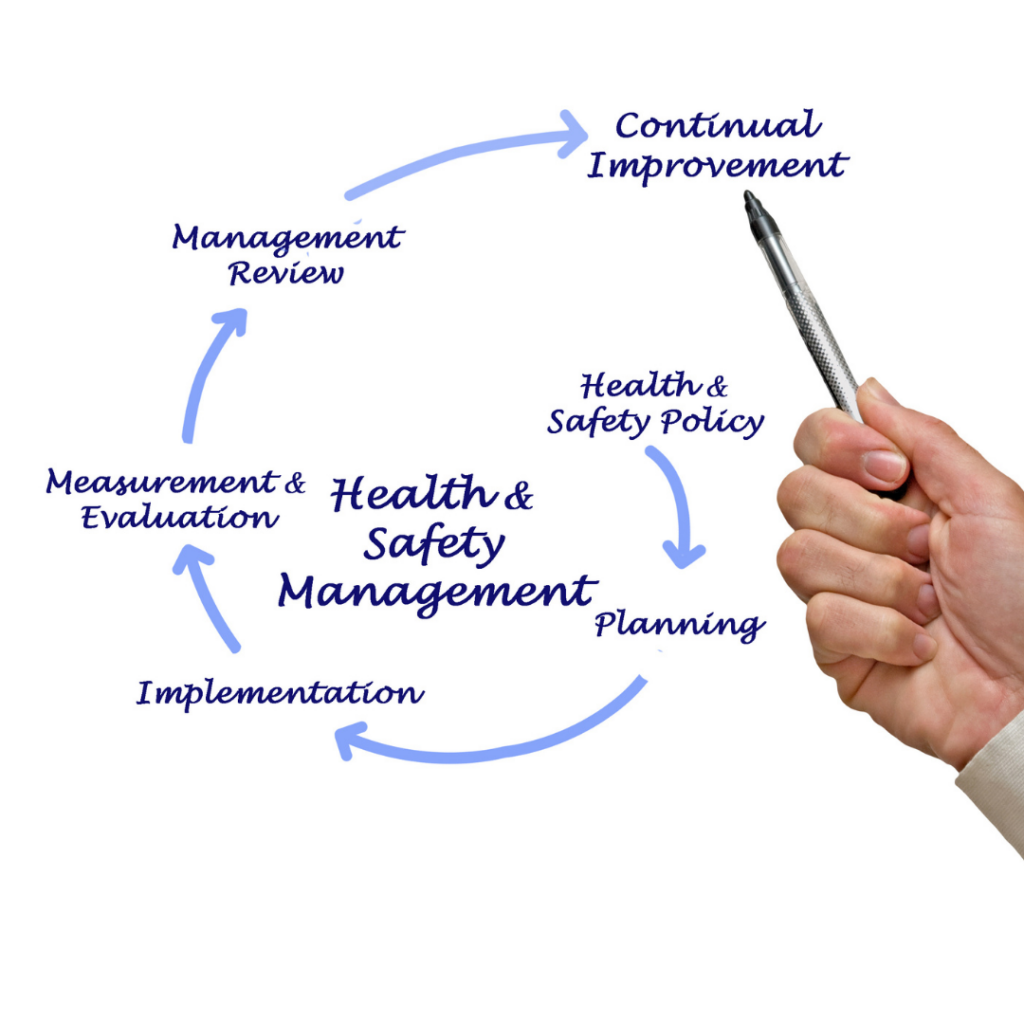Safety is key to the success of any transport company. Successful companies strive to have a solid workplace safety culture. It helps employees feel valued and shows clients that you are reputable and take your work seriously.
Safety is the foundation of your success
Establishing an effective safety culture doesn’t come from the top down, with the executive imposing rules that everyone has to follow, or else, because it’s legislated. It’s more than worker buy-in, too. It comes from corporate values that line up with personal attitudes to create a safety environment that works for everyone. It doesn’t happen by accident; you need a plan and some strategies.
For safety success, every company needs an effective health and safety policy supported by a joint health and safety committee, best practices, and resources that help you communicate with workers and clients.
Health and Safety Policy
A good health and safety policy sets out your safety principles in writing. You can post it where everyone in your business can read it and share it easily with clients and auditors. It should list the legislation you follow, such as the Canada Labour Code Part II, the Canada Occupational Health and Safety Regulation under the inspection jurisdiction of WorkSafeBC, and the Workers Compensation Act of BC. It should also make commitments about how you’ll meet your goals, such as by providing a safe workplace and recognizing your employees’ rights.
Joint Health and Safety Committee
The Workers Compensation Act requires employers to set up a joint health and safety committee (JHSC) if they employ 20 or more full-time and part-time workers. Companies with more than nine but fewer than 20 workers must have a health and safety representative who has the same role as a committee. The JHSC, or representative, helps reduce workplace injury and disease. You won’t be on your own to establish your committee. SafetyDriven provides WorkSafeBC’s handbook and keeps you informed about changes to regulations.
– Composition of committee. The Workers Compensation Act requires your JHSC to have at least four members made up of worker and employer representatives. At least half the members must be workers. The committee must have two co-chairs, one chosen by worker representatives and one by employer representatives.
– Role. The JHSC promotes workplace health and safety; consults with workers and employers; recommends improvements to health and safety policies and practices; and promotes compliance with the legislation.
– Duties and functions. The JHSC, or representative, identifies unsafe situations and recommends ways to address them; advises the employer of required programs and policies; and makes sure inspections and accident investigations are done.
Best Practices
Your aim for setting up best practices for your workplace is safety, which means keeping your workers safe, healthy and on the job. Employers and managers can support such practices by thinking of safety as a shared responsibility. Show support by committing to a safe workplace and modelling the attitude and behaviour you want to see in your workers. Communication is key. You can promote and champion safety programs by spreading the word. Communication is especially important for a transportation company where a large portion of the workforce is often far away from the head office. Doing regular evaluations backs up your programs by examining how well your policies work and making improvements. Transportation companies also benefit by earning the Certificate of Recognition.
Resources
SafetyDriven provides practical resources to help companies establish and promote their safety programs. Posters; safety articles; handouts; and templates and forms, including checklists, are available for free. Use them to communicate with your workforce, to support good safety practices, and to organize your safety activities.
As you prepare your company for safety success, there are plenty of companies to provide inspiration, including Quality Move Management, Alchemist Specialty Carriers, F&G Delivery, Kool Pak Canada, and the many COR certified companies that have worked with SafetyDriven.
